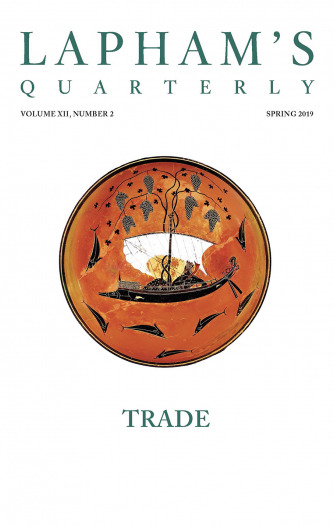There lurks in every human heart a desire of distinction which inclines every man first to hope and then to believe that nature has given him something peculiar to himself.
—Samuel Johnson, 1763Great Man Theory
Emerson’s ubermensch.
It is natural to believe in great men. If the companions of our childhood should turn out to be heroes and their condition regal, it would not surprise us. All mythology opens with demigods, and the circumstance is high and poetic; that is, their genius is paramount. In the legends of the Gautama, the first men ate the earth, and found it deliciously sweet.
Nature seems to exist for the excellent. The world is upheld by the veracity of good men: they make the earth wholesome. They who lived with them found life glad and nutritious. Life is sweet and tolerable only in our belief in such society, and actually, or ideally, we manage to live with superiors. We call our children and our lands by their names. Their names are wrought into the verbs of language, their works and effigies are in our houses, and every circumstance of the day recalls an anecdote of them.
The search after the great is the dream of youth and the most serious occupation of manhood. We travel into foreign parts to find his works—if possible, to get a glimpse of him. But we are put off with fortune instead. You say the English are practical, the Germans are hospitable, in Valencia the climate is delicious, and in the hills of the Sacramento there is gold for the gathering. Yes, but I do not travel to find comfortable, rich, and hospitable people, or clear sky, or ingots that cost too much. But if there were any magnet that would point to the countries and houses where are the persons who are intrinsically rich and powerful, I would sell all, and buy it, and put myself on the road today.
The race goes with us on their credit. The knowledge that in the city is a man who invented the railroad raises the credit of all the citizens. But enormous populations, if they be beggars, are disgusting, like moving cheese, like hills of ants, or of fleas—the more, the worse.

Pandava brothers, victors over the Kauravas in the Kurukshetra War, a central story of the Mahabharata, Somnath Temple, Gujarat, India. © Surya Temple, Dinodia, The Bridgeman Art Library International.
Our religion is the love and cherishing of these patrons. The gods of fable are the shining moments of great men. We run all our vessels into one mould. Our colossal theologies of Judaism, Christism, Buddhism, and Mahometism are the necessary and structural action of the human mind. The student of history is like a man going into a warehouse to buy cloths or carpets. He fancies he has a new article. If he goes to the factory, he shall find that his new stuff still repeats the scrolls and rosettes which are found on the interior walls of the pyramids of Thebes. Our theism is the purification of the human mind. Man can paint, or make, or think nothing but man. He believes that the great material elements had their origin from his thought. And our philosophy finds one essence collected or distributed.

Ralph Waldo Emerson
From Representative Men. Descended from a long line of clergymen, Emerson resigned from his pastorate in 1832, stating in his farewell sermon that he no longer believed in celebrating the Holy Communion. Four years later he anonymously published Nature, effectively beginning the Transcendentalist movement. Representative Men contains biographies of Goethe, Shakespeare, and Napoleon.


